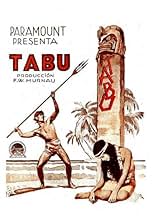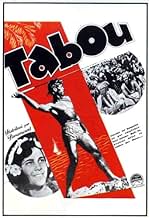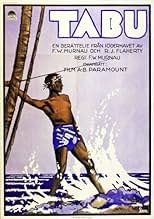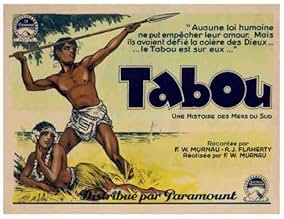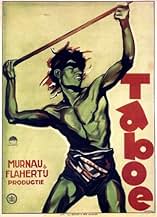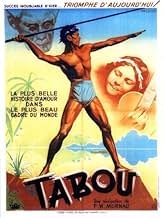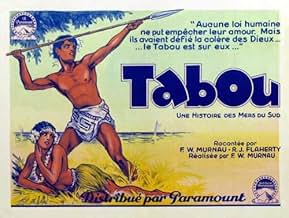Auf der Südsee-Insel Bora Bora droht der Liebe eines jungen Paares das Aus, als der Stammeschef das Mädchen zur göttlichen Jungfrau erklärt.Auf der Südsee-Insel Bora Bora droht der Liebe eines jungen Paares das Aus, als der Stammeschef das Mädchen zur göttlichen Jungfrau erklärt.Auf der Südsee-Insel Bora Bora droht der Liebe eines jungen Paares das Aus, als der Stammeschef das Mädchen zur göttlichen Jungfrau erklärt.
- Regie
- Drehbuch
- Hauptbesetzung
- 1 Oscar gewonnen
- 4 wins total
- The Girl
- (as Reri)
- The Policeman
- (as Jean)
- The Businessman
- (Nicht genannt)
- The Captain
- (Nicht genannt)
- Boys Friend
- (Nicht genannt)
Empfohlene Bewertungen
Sadly, this was to be F. W. Murnau's last film. Despite a short life, he made many great films (including this one)... and then came a car accident that left us without another three or four decades of genius.
On the bright side, cinematographer Floyd Crosby won an Academy Award for Best Cinematography for his work on this film. Crosby went on to work for a great many years, bringing out the best in such directors as Roger Corman. In "Tabu", he uses the camera to tell a story without words -- body language and eye movement tell us almost everything we need to follow the plot.
The film was not a box office success upon release, grossing just $472,000 worldwide, which failed to recoup Murnau and Paramount's investment. This seems odd today, when it is considered a classic, but there is no secret that critically successful films and commercially successful films are not always the same thing.
The Image DVD features commentary by film historian Janet Bergstrom, which is quite excellent. Other editions feature other commentary, but I have not heard it and cannot compare.
Although no members of the cast were professional actors, the performances by Matahi (as a young pearl fisherman) and Reri (as the `tabu' island girl) are moving. More than 70 years after its release, `Tabu' remains essential viewing, and UCLA's restoration of this classic has been a highlight of the schedule of new DVD releases in 2002. In fact, the film's luxurious black-and-white cinematography garnered cameraman Floyd Crosby an Oscar. DVD extras include audio commentary by UCLA Film Professor Janet Bergstrom; outtake footage; theatrical trailer; still gallery; short film titled `Reri in New York.'
The actors are real Polynesians and their ceremonies and rituals are faithfully captured, and interwoven with a tragic love story. The cinematography deservedly won an Oscar - it is truly beautiful. Murnau, away from his usual studio sets, manages to create the same sense of danger using natural light - especially moonlight - and real locations.
The performances are very strong - especially Chevalier as the girl, and the old man is as scary as Nosferatu as he haunts her dreams at night.
Sadly this was Murnau's last film - he died in a car crash just before the premiere. It is a little dramatically uneven, and certainly not the masterpiece that "Sunrise" is, but it is still very worthwhile.
Wusstest du schon
- WissenswertesProducer/director/co-writer F.W. Murnau died in a car accident a few days after starting work on the music for this film. It had its New York premiere a week later.
- Zitate
The Girl: [writing a goodbye letter] I must go. Hitu is here and waits for me. You will die if I do not obey. I will go so that you may live. The tabu is upon us. I have been so happy with you far more than I deserved. The love you have given me, I will keep to the last beat of my heart. Across the great waters, I will come to you in your dreams when the moon spreads its path on the sea. Farewell.
- VerbindungenEdited into Treibjagd in der Südsee (1940)
Top-Auswahl
- How long is Tabu: A Story of the South Seas?Powered by Alexa
Details
Box Office
- Budget
- 150.000 $ (geschätzt)
- Laufzeit
- 1 Std. 26 Min.(86 min)
- Sound-Mix


